Ireland is an island in the North Atlantic, divided between the Republic of Ireland and Northern Ireland. It's west of Great Britain and ranks as the second-largest island in the British Isles and third-largest in Europe. The island's population is approximately 7 million as of 2022, with the Republic of Ireland holding 5.1 million and Northern Ireland at 1.9 million, making it the second-most populous island in Europe after Great Britain.
1900: Gaelic revival begins
By 1900, cultural nationalists had begun the Gaelic revival, which saw the beginnings of modern literature in Irish.
1900: Publication of Aether and Matter by Joseph Larmor
In 1900, Sir Joseph Larmor published his most influential work, Aether and Matter, a book on theoretical physics.
1904: Founding of the Abbey Theatre
In 1904, the Republic of Ireland's national theatre, the Abbey Theatre, was founded.
1913: Ulster Volunteers Formation
In 1913, to prevent the Home Rule bill from passing, the Ulster Volunteers were formed under the leadership of Edward Carson.
1914: Home Rule Bill
In 1914, after several attempts to pass a Home Rule bill through parliament, it looked certain that one would finally pass.
1914: Establishment of the Irish Volunteers
In 1914, the Irish Volunteers were established with the aim to ensure that the Home Rule Bill was passed.
1916: Easter Rising
In 1916, the Easter Rising was carried out by the Irish Volunteers and the Irish Citizen Army.
1918: Sinn Féin Election Victory
In 1918, the pro-independence republican party, Sinn Féin, received overwhelming endorsement in the general election.
1918: Conscription Crisis
The Conscription Crisis of 1918 increased support for Irish republicanism due to the ongoing war in Europe.
1919: Proclamation of Irish Republic
In 1919, Sinn Féin proclaimed an Irish Republic, setting up its own parliament (Dáil Éireann) and government.
1920: Government of Ireland Act
In 1920, Northern Ireland resulted from the division of the United Kingdom by the Government of Ireland Act.
July 1921: Truce in the Guerrilla War
In July 1921, a truce was called, ending the three-year guerrilla war launched by the Irish Republican Army (IRA).
December 1921: Anglo-Irish Treaty Concluded
In December 1921, the Anglo-Irish Treaty was concluded between the British government and representatives of the Second Dáil, granting Ireland complete independence in its home affairs.
1921: Population Decline
By 1921, the population of Ireland was reduced to slightly over four million.
1921: Dublin clubs break away to form the Football Association of the Irish Free State
In 1921, Dublin-based clubs broke away from the IFA (Irish Football Association) to form the Football Association of the Irish Free State after an incident involving the relocation of an Irish Cup semi-final replay.
1921: Partition of Ireland
Prior to the partition in Ireland in 1921, Ireland had a long history as an economic colony.
June 1922: Continued Violence
In June 1922, violence continued, mostly in Northern Ireland, despite the truce of July 1921.
1922: Publication of Ulysses by James Joyce
James Joyce's 1922 novel "Ulysses" is considered one of the most important works of Modernist literature.
May 1923: End of Irish Civil War
In May 1923, the Irish Civil War officially ended when Éamon de Valera issued a cease-fire order.
1928: Establishment of An Taibhdhearc
In 1928, the national Irish-language theatre An Taibhdhearc was established in Galway.
1929: First-past-the-post electoral system
In 1929, the government of Northern Ireland, elected by "first-past-the-post", was controlled by the Ulster Unionist Party.
1937: Adoption of New Constitution
In 1937, a new constitution was adopted, completing a process of gradual separation from the British Empire.
September 1941: End of German Intelligence Operations
In September 1941, German intelligence operations in Ireland ended when police made arrests based on surveillance carried out on key diplomatic legations in Dublin.
1941: Bombing of Belfast
In 1941, Belfast suffered four bombing raids as Northern Ireland, part of the United Kingdom, was not neutral during the Second World War.
1947: Fred Daly
In 1947, Fred Daly won the British Open.
1948: Republic of Ireland Act
In 1948, the Irish Free State officially declared itself a republic, becoming the Republic of Ireland.
1949: Republic of Ireland Officially Declared
In 1949, the state was officially declared to be the Republic of Ireland.
1949: Publication of Cré na Cille by Máirtín Ó Cadhain
Máirtín Ó Cadhain's 1949 novel Cré na Cille is regarded as a modernist masterpiece.
1950: FIFA directed the associations only to select players from within their respective territories
In 1950, FIFA directed the associations only to select players from within their respective territories.
1951: Ernest Walton wins the Nobel Prize in Physics
Ernest Walton won the 1951 Nobel Prize in Physics for his contributions to splitting the nucleus of the atom by artificial means and contributions to the development of a new theory of wave equation.
1953: FAI's team to be known only as "Republic of Ireland" and that the IFA's team be known as "Northern Ireland"
In 1953, FIFA directed that the FAI's team be known only as "Republic of Ireland" and that the IFA's team be known as "Northern Ireland".
1953: Survey found that 50% of whiskey drinkers in the United States had never heard of Irish whiskey
In 1953, an Irish government survey, found that 50% of whiskey drinkers in the United States had never heard of Irish whiskey.
1958: Northern Ireland qualified for the World Cup finals
Northern Ireland qualified for the World Cup finals in 1958, reaching the quarter-finals.
1961: Population Decline
In 1961, the population of Ireland continued to fall. County Leitrim was the final Irish county to record a population increase post-famine, in 2006.
1967: Discovery of pulsars by Jocelyn Bell Burnell
In 1967, the astronomer Jocelyn Bell Burnell discovered pulsars.
1969: Emergence of the Provisional IRA
In 1969, the paramilitary Provisional IRA emerged from a split in the Irish Republican Army and began a campaign against what it called the "British occupation of the six counties".
1970: Last time a European won the U.S. Open before Graeme McDowell in 2010
1970 was the last time a European won the U.S. Open, before Graeme McDowell won in 2010.
1972: Suspension of Home Rule
In 1972, owing to the civil unrest during the Troubles, the British government suspended home rule in Northern Ireland and imposed direct rule.
1972: Self-Governing Jurisdiction
Until 1972, Northern Ireland was a self-governing jurisdiction within the United Kingdom with its own parliament and prime minister.
1973: Accession to the European Economic Community (EEC)
In 1973, The Republic of Ireland and The United Kingdom both acceded to the European Economic Community (EEC).
1973: Joined European Economic Community
In 1973, both the Republic of Ireland and the United Kingdom, including Northern Ireland, joined the European Economic Community.
1973: Sunningdale Agreement
In 1973, there was an unsuccessful attempt to end the Troubles politically with the Sunningdale Agreement.
1982: Northern Ireland qualified for the World Cup finals
Northern Ireland qualified for the World Cup finals in 1982.
1986: Northern Ireland qualified for the World Cup finals
Northern Ireland qualified for the World Cup finals in 1986.
1987: Economic Improvement
Beginning in 1987, the Irish economy improved after a period of large-scale emigration.
1988: Republic of Ireland qualified for the European Championship
The Republic of Ireland qualified for the European Championship in 1988.
1990: Republic of Ireland qualified for the World Cup finals
The Republic of Ireland qualified for the World Cup finals in 1990, reaching the quarter-finals.
1991: Ireland hosted games during the Rugby World Cup
Ireland hosted games during the 1991 Rugby World Cup, including a quarter-final.
1994: Armagh re-granted city status
In 1994, Armagh was re-granted city status by Queen Elizabeth II (having lost that status in local government reforms of 1840).
1994: Irish rugby went professional
In 1994, Irish rugby became professional.
1994: Provisional IRA and loyalist ceasefires
In 1994, violence had decreased greatly after the Provisional IRA and loyalist ceasefires.
1994: Republic of Ireland qualified for the World Cup finals
The Republic of Ireland qualified for the World Cup finals in 1994.
1995: Start of the Celtic Tiger period
A period of rapid economic expansion from 1995 onwards became known as the Celtic Tiger period.
1995: Economic Growth
Beginning in 1995, the Republic of Ireland experienced substantial economic growth, known as the Celtic Tiger.
1995: Sonia O'Sullivan won gold at the World Championships
In 1995, Sonia O'Sullivan won gold at the 5,000 metres at the World Championships.
1995: Heat wave
Ireland was affected by a heat wave in 1995.
1998: Good Friday Agreement
In 1998, following a ceasefire by the Provisional IRA and multi-party talks, the Good Friday Agreement was concluded as a treaty between the British and Irish governments.
1999: John B. Cosgrave discovered a 2000-digit prime number
In 1999 John B. Cosgrave, a specialist in number theory, discovered a 2000-digit prime number.
1999: Discovery of natural gas in the Corrib Gas Field
In 1999, economically significant finds of natural gas were made in the Corrib Gas Field off the County Mayo coast.
1999: Joined the Euro
In 1999, the Republic of Ireland joined the euro.
1999: Ireland hosted games during the Rugby World Cup
Ireland hosted games during the 1999 Rugby World Cup.
2000: John B. Cosgrave discovered a 2000-digit prime number
In 2000 John B. Cosgrave, a specialist in number theory, discovered a 2000-digit prime number.
2000: Sonia O'Sullivan won silver at the Sydney Olympics
In 2000, Sonia O'Sullivan won silver at the 5,000 metres at the Sydney Olympics.
2000: Discovery of the Helvick oil field
In 2000, the Helvick oil field was discovered, which was estimated to contain over 28 million barrels (4,500,000 m) of oil.
2000: Sixth-Richest Country
In 2000, the Republic of Ireland was the sixth-richest country in the world in terms of GDP per capita.
2001: Local Government Act
Since the 2001 Local Government Act, Kilkenny is no longer a city for administrative purposes, but is entitled by law to continue to use the description.
2002: Republic of Ireland qualified for the World Cup finals
The Republic of Ireland qualified for the World Cup finals in 2002.
2003: Sports Attendances in Ireland
In 2003, Gaelic football accounted for 34% of total sports attendances in Ireland and abroad, followed by hurling at 23%, soccer at 16%, and rugby at 8%.
2003: Gillian O'Sullivan won silver in the 20k walk at the World Championships
In 2003, Gillian O'Sullivan won silver in the 20k walk at the World Championships.
2003: John B. Cosgrave discovered a record composite Fermat number
In 2003, John B. Cosgrave discovered a record composite Fermat number.
2003: Heat wave
Ireland was affected by a heat wave in 2003.
2004: Ireland won a Triple Crown
In 2004, the Irish International side had success in the Six Nations Championship, including a Triple Crown.
2004: Increased research and development in renewable energy
Research and development in renewable energy (such as wind power) has increased since 2004.
2004: EU expansion to include Poland
Since the European Union expanded to include Poland in 2004, Polish people have comprised the largest number of immigrants (over 150,000) from Central Europe.
2005: Provisional IRA announces end of armed campaign
In 2005, the Provisional IRA announced the end of its armed campaign and an independent commission supervised its disarmament and that of other nationalist and unionist paramilitary organisations.
2005: Katie Taylor has won gold in every European and World championship
Since 2005, Katie Taylor has consistently won gold medals in every European and World championship she has participated in.
2006: Census in the Republic of Ireland
According to the 2006 census, the Muslim community is growing in Ireland, mostly through increased immigration.
2006: Irish diaspora in Canada
As of 2006, 4.3 million Canadians, or 14% of the population, were of Irish descent.
2006: Foreign nationals in the Republic of Ireland
As of 2006, The Republic of Ireland had 420,000 foreign nationals, about 10% of the population.
2006: Population increase in County Leitrim
In 2006, County Leitrim recorded a population increase, being the final Irish county to do so post-famine.
2006: Munster won the Heineken Cup
In 2006, Munster won the Heineken Cup.
2006: The Ryder Cup was held at The K Club
In 2006, The Ryder Cup was held at The K Club in County Kildare.
2006: Derval O'Rourke won gold at the World Indoor Championship in Moscow
In 2006, sprint hurdler Derval O'Rourke won gold at the World Indoor Championship in Moscow.
2006: Heat wave
Ireland was affected by a heat wave in 2006.
2006: Closing of the salmon driftnet fishery
Salmon fishing in Ireland received a boost in 2006 with the closing of the salmon driftnet fishery.
July 2007: Pádraig Harrington won the British Open at Carnoustie
In July 2007, Pádraig Harrington became the first Irishman since Fred Daly in 1947 to win the British Open at Carnoustie.
2007: Redevelopment of Lansdowne Road stadium
During the redevelopment of the Lansdowne Road stadium in 2007, international rugby and soccer were played at Croke Park.
2007: Restoration of Assembly and Power-Sharing Executive
In 2007, the Assembly and power-sharing Executive were restored again. In that year the British government officially ended its military support of the police in Northern Ireland (Operation Banner) and began withdrawing troops.
2007: Ireland won a Triple Crown
In 2007, the Irish International side had success in the Six Nations Championship, including a Triple Crown.
July 2008: Pádraig Harrington defended his title at the British Open
In July 2008, Pádraig Harrington successfully defended his title at the British Open.
2008: Kenneth Egan won a silver medal and Paddy Barnes secured bronze in the Beijing Games
In 2008, Kenneth Egan won a silver medal and Paddy Barnes secured bronze in the Beijing Olympic Games.
2008: Munster won the Heineken Cup
In 2008, Munster won the Heineken Cup again.
2008: Start of the Irish economic downturn
In 2008, the Celtic Tiger period was brought to an end by the post-2008 Irish economic downturn.
2008: Economic Downturn
The post-2008 Irish economic downturn dramatically ended the period of economic boom. GDP fell by 3% in 2008.
2009: Economic depression
In 2009, Ireland experienced an economic depression.
2009: Leinster won the Heineken Cup and Ireland achieved a Grand Slam
In 2009, Leinster won the Heineken Cup, and the Irish International side completed a clean sweep of victories, achieving a Grand Slam in the Six Nations Championship.
2009: Olive Loughnane won a silver medal in the 20k walk at the World Athletics Championships
In 2009, Olive Loughnane won a silver medal in the 20k walk at the World Athletics Championships in Berlin.
2009: CNBC American broadcaster researched Irish whiskey
Irish whiskey, as researched in 2009 by the CNBC American broadcaster, remains popular domestically and has grown in international sales steadily over a few decades.
2009: Births to mothers born outside of Ireland
Nearly a quarter of births (24 percent) in 2009 in the Republic of Ireland were to mothers born outside of Ireland.
2010: End of Lansdowne Road stadium redevelopment
In 2010 the redevelopment of the Lansdowne Road stadium concluded.
2010: Graeme McDowell won the U.S. Open
In 2010, Graeme McDowell became the first Irish golfer to win the U.S. Open, and the first European to win that tournament since 1970.
2010: Paddy Barnes won gold in the European Amateur Boxing Championships and Commonwealth Games
In 2010, Paddy Barnes secured gold in the European Amateur Boxing Championships and the Commonwealth Games.
2010: Survey on religious service attendance
In a 2010 survey conducted on behalf of the Irish Times, 32% of respondents said they went to a religious service more than once per week.
2010: Unusually cold weather during the winter
In common with the rest of Europe, Ireland experienced unusually cold weather during the winter of 2010–11. Temperatures fell as low as −17.2 °C (1 °F) in County Mayo on 20 December and up to a metre (3 ft) of snow fell in mountainous areas.
2010: Bundoran Hosted European Championship Surfing
Since just before 2010, Bundoran has hosted European championship surfing.
2011: Census in the Republic of Ireland
According to the 2011 census, the Muslim community is growing in Ireland, mostly through increased immigration, with a 50% increase in the republic between the 2006 and 2011 census.
2011: Leinster won the Heineken Cup
In 2011, Leinster won the Heineken Cup.
2011: Rory McIlroy won the U.S. Open and Darren Clarke won the Open Championship
In 2011, Rory McIlroy won the U.S. Open, and Darren Clarke won the Open Championship at Royal St. George's.
June 2012: Martin McGuinness shakes hands with Queen Elizabeth II
On 27 June 2012, Northern Ireland's deputy first minister and former IRA commander, Martin McGuinness, shook hands with Queen Elizabeth II in Belfast, symbolising reconciliation between the two sides.
August 2012: Katie Taylor won a gold medal at the Olympic Games in London
In August 2012 at the Olympic Games in London, Katie Taylor became the first Irish woman to win a gold medal in boxing in the 60 kg lightweight division.
August 2012: Rory McIlroy won the USPGA Championship
In August 2012, Rory McIlroy won his 2nd major championship by winning the USPGA Championship by a record margin of 8 shots.
2012: Leinster won the Heineken Cup
In 2012, Leinster won the Heineken Cup.
2012: Genetic Research on Early Farmers
In 2012, research showed that the occurrence of genetic markers for the earliest farmers was almost eliminated by Beaker-culture immigrants. They carried what was then a new Y-chromosome R1b marker, believed to have originated in Iberia about 2,500 BC.
2012: Unemployment Remains High
In 2012, unemployment in the Republic of Ireland remained above 14% after doubling during 2009.
2012: Republic of Ireland qualified for the European Championship
The Republic of Ireland qualified for the European Championship in 2012.
2013: Irish-Americans
As of 2013, there were 40 million Irish-Americans and 33 million Americans who claimed Irish ancestry.
2014: Republic Ranked Top 10 for Clean-Technology Investment
In 2014, the Republic of Ireland ranked as one of the top 10 markets for clean-technology investment in the Global Green Economy Index.
2015: Ireland ranked sixth most developed nation
In 2015, The Republic of Ireland was ranked the sixth most developed nation in the world by the United Nations' Human Development Index.
2016: Referendum to leave the EU
Following a referendum vote in 2016, the United Kingdom, including Northern Ireland, voted to leave the European Union (EU).
2016: Referendum on EU membership
In 2016 a referendum on EU membership was held in the UK.
2016: Northern Ireland and the Republic qualified for the European Championship
In 2016, both Northern Ireland and the Republic of Ireland qualified for the European Championship.
2018: Ireland achieved a Grand Slam
In 2018, the Irish International side completed a clean sweep of victories, achieving a Grand Slam in the Six Nations Championship.
2018: Heat wave
Ireland was affected by a heat wave in 2018.
2020: Kellie Harrington won a gold medal at the Tokyo Olympics
In 2020, Kellie Harrington won a gold medal at the Tokyo Olympics.
2020: The UK leaves the European Union
In 2020, the UK left the European Union after a referendum on EU membership was held in 2016 which resulted in 51.9% of UK voters choosing to leave the bloc.
2020: United Kingdom leaves the EU
In 2020, the United Kingdom, including Northern Ireland, officially left the European Union (EU). Northern Ireland was granted a limited special status, allowing it to operate within the EU single market for goods.
2021: GDP of the Republic of Ireland and Northern Ireland
As of 2021, the GDP of the Republic of Ireland was €423.5 billion (nominal), and in Northern Ireland, it was £52 billion (GVA Balanced).
2021: Discovery of Early Human Activity
In 2021, a reindeer bone with chop marks found in Castlepook Cave near Doneraile, County Cork was dated to 33,000 years ago, pushing back the earliest signs of human activity in Ireland by 20,000 years.
2022: Population of Ireland
As of 2022, the population of the entire island of Ireland is just over 7 million, with 5.1 million in the Republic of Ireland and 1.9 million in Northern Ireland.
2023: Monthly cost of living and average wage comparison
In 2023 a comparison of the monthly cost of living and average wage after tax in Northern Ireland versus those in the Republic of Ireland was performed.
2024: Ireland ranked second most peaceful country
According to the 2024 Global Peace Index, Ireland is the second most peaceful country in the world.
2024: Ireland ranked 19th in the Global Innovation Index
In 2024, Ireland was ranked 19th in the Global Innovation Index.
2025: Ireland's ICC Men's Test Team Ranking
In 2025, Ireland is ranked 10th in the ICC Men's Test Team Rankings with a rating of 30.
Mentioned in this timeline

Elizabeth II reigned as Queen of the United Kingdom and...
CNBC is an American business news channel owned by Versant...
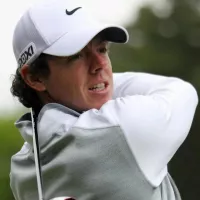
Rory McIlroy is a Northern Irish professional golfer renowned for...

Football is a family of team sports primarily involving kicking...
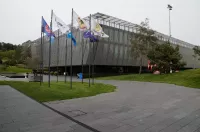
FIFA the F d ration Internationale de Football Association is...
The modern Olympic Games are a leading international sporting event...
Trending
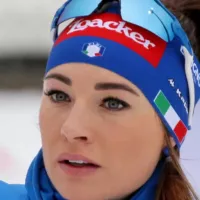
1 hour ago Dorothea Wierer at Olympia 2026: Focus on Biathlon Massenstart and Preuß's Last Race.
1 hour ago Juventus vs Como: Preview, Predictions, and Spalletti's Demand for Serie A Reaction
1 hour ago Woman Charged After Abandoning Puppy; 'JetBlue' Finds Home with Saving Officer.
1 hour ago France Secures Gold in Ski Mountaineering Mixed Relay at the Olympics
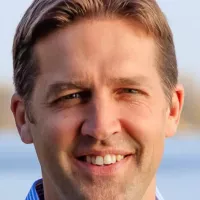
2 hours ago Ben Sasse Discusses Mortality, Gospel, and Politics in Recent Discussions and Reflections.
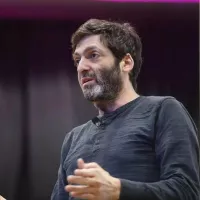
2 hours ago Dan Ariely's Epstein Ties Surface, Raising Questions About Dishonesty Research, File Disclosure.
Popular

Jesse Jackson is an American civil rights activist politician and...
Randall Adam Fine is an American politician a Republican who...

Ken Paxton is an American politician and lawyer serving as...

Barack Obama the th U S President - was the...

Bernie Sanders is a prominent American politician currently serving as...
WWE Raw a professional wrestling television program by WWE airs...


